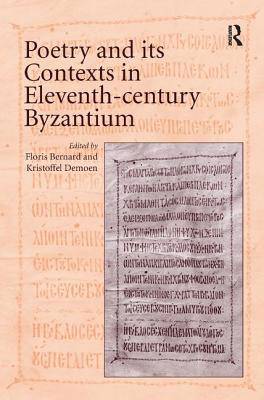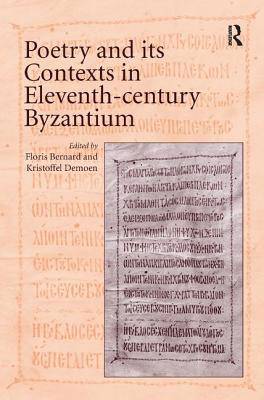
- Afhalen na 1 uur in een winkel met voorraad
- Gratis thuislevering in België vanaf € 30
- Ruim aanbod met 7 miljoen producten
- Afhalen na 1 uur in een winkel met voorraad
- Gratis thuislevering in België vanaf € 30
- Ruim aanbod met 7 miljoen producten
Zoeken
€ 290,45
+ 580 punten
Uitvoering
Omschrijving
Byzantine poetry of the eleventh century is fascinating, yet underexplored terrain. It presents a lively view on contemporary society, is often permeated with wit and elegance, and is concerned with a wide variety of subjects. Only now are we beginning to perceive the possibilities that this poetry offers for our knowledge of Byzantine culture in general, for the intellectual history of Byzantium, and for the evolution of poetry itself. It is, moreover, sometimes in the most neglected texts that the most fascinating discoveries can be made. This book, the first collaborative book-length study on the topic, takes an important step to fill this gap. It brings together specialists of the period who delve into this poetry with different but complementary objectives in mind, covering the links between art and text, linguistic evolutions, social functionality, contemporary reading attitudes, and the like. The authors aim to give the production of 11th-century verse a place in the Byzantine genre system and in the historic evolution of Byzantine poetry and metrics. As a result, this book will, to use the expression of two important poets of the period, "offer a small taste" of what can be gained from the serious study of this period.
Specificaties
Betrokkenen
- Auteur(s):
- Uitgeverij:
Inhoud
- Aantal bladzijden:
- 256
- Taal:
- Engels
Eigenschappen
- Productcode (EAN):
- 9781409440710
- Verschijningsdatum:
- 28/03/2012
- Uitvoering:
- Hardcover
- Formaat:
- Genaaid
- Afmetingen:
- 156 mm x 234 mm
- Gewicht:
- 539 g

Alleen bij Standaard Boekhandel
+ 580 punten op je klantenkaart van Standaard Boekhandel
Beoordelingen
We publiceren alleen reviews die voldoen aan de voorwaarden voor reviews. Bekijk onze voorwaarden voor reviews.











